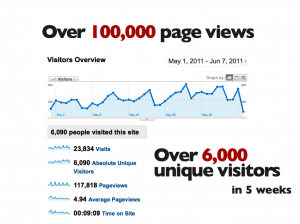05 Jun Choosing The Right Keywords Is A 10-Step Process!
Keyword research can be done in an easy manner; you don’t even need a professional keyword research tool. However, if you want to enjoy the full benefits of selecting the most appropriate keywords for your site and content, you do need to dig deeper.
To be more precise, a truly advanced keyword research that will bring advantages to your site and be overall fruitful implies following a 10-step process. Here are the steps that I recommend:
1. Get your relative search volume data from the right sources
When it comes to finding the appropriate sources to help you compare the number research, the top 2 most reliable tools you can find on the internet are:
- Google AdWords – provides information about the average search volume on different periods of time.
- MSN AdCenter – despite the fact that you need to create an account, the data you find there is actually very accurate.
Why do we consider these tools useful? Because they allow us to work with chunks of data that we can effectively compare. At the same time, I believe that working with real numbers instead of percentages does not really make sense, since it is practically impossible to estimate the traffic of a site accurately in this manner.
2. Take the temporal fluctuations into account
By determining when the queries you are interested in are in the highest demand, you will be able to anticipate the periods when additional SEO efforts might be needed. In the eventuality that you notice your targeted keywords drop constantly over longer time frames, you will know that it is time to find new keywords. Simply put, knowing the fluctuations allows you to plan your SEO campaign efficiently.
3. Get to know your competitors
You simply cannot engage in a competition without knowing the stats of the other webmasters who are targeting the same keywords as you. This information helps you identify what your site lacks and needs, on both the domain name and URLs.
4. The social media environment
The fact that you are unable to do effective SEO without integrating social media and social networks cannot be stressed enough. This is why we recommend you search the fresh web activity and find out the frequency at which your targeted keywords appear on conversations, blogs, forums, feeds, so on and so forth.
In addition, this analysis is particularly useful in identifying the trends for your niche (the rise and fall of concepts and keywords), spot web communities where your content is considered hot and discover the content that has attracted a lot of traffic in the past.
5. The vertical search results

6. Find out more about the users’ intentions
If you are able to find an answer to when (decision phase) and why (goals-wise) they are using your targeted keywords, then you will be able to get the best ideas for terms and phrases that attract traffic to your site.
7. Testing the keywords relevance
The simplest ways to determine the relationship between your content and targeted keywords is to examine your analytics or run a PPC campaign and see the percentage of users who found your site via the search query. Make a top of the keywords that brought you visitors using various criteria (time browsing, conversion, time on page) and you will get your targeted keywords relevancy.
8. Analyzing the PPC advertisement data
You cannot analyze information such as relevance, visitor value or potential conversion rates without the data from the PPC campaigns. Like it or not and even if you are not planning to bid on keywords in the near future, knowing what the competition is doing and how much they are earning from it is crucial in this harsh business environment.
9.Identify the top related queries
Besides the targeted keywords, you need to find out the other terms used by visitors in the search query so you can build content around them and use them in the next campaign.
10. Are there any legal issues you should be aware of?
While this is rarely the case, make sure you using non-trademarked terms and phrases to avoid potential lawsuits.
This guest post comes from Chad Faith. Chad enjoys blogging about the relevance of selecting the right keyword tool to help promote and keep track of a site’s progress.


